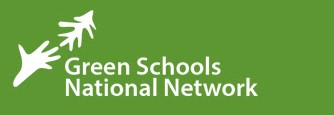Lasting Learning, Real Impact through Project-Based Learning
CurriculumBy. Suzie Boss, PBLWorks
Across diverse contexts, I regularly meet students who are taking action to build a more sustainable future. Whether it’s first-graders designing a rain garden for their playground, middle schoolers educating adults about composting, or high school students advocating for investment in carbon offsets, these students aren’t waiting for “someday” to make a difference in their world.
Not so long ago, efforts like these might have been reserved for after school clubs or youth groups serving only a subset of students. That’s changing with the increasing adoption of project-based learning (PBL) as a core instructional strategy in schools around the world.
By designing sustainability projects that address academic goals, teachers are bringing real-world problem-solving right into the regular school day. As a result, more students are discovering how to use their knowledge and passion to have real impact on issues that matter to them.
Getting Started with Project-Based Learning
When teachers are new to PBL, I encourage them to learn from others who have been down this path. PBLWorks(formerly known as the Buck Institute for Education) maintains a searchable project library along with resources to help teachers design, manage, and assess high-quality PBL. EL Schools, a network of PBL schools, curates a project library called Models of Excellence. Edutopia produces video case studies that show projects from start to finish, along with blogs from PBL advocates (like me!) who share classroom-tested strategies.
For many teachers, PBL requires significant shifts in practice. It’s not the same as doing a hands-on activity like a diorama at the end of a traditional unit of study. Instead, projects that lead to deep learning challenge students to investigate open-ended questions. There’s no script or recipe. Instead, students exercise voice and choice as they apply their learning to develop solutions or products. At the end, they share evidence of their learning with an authentic audience. (Learn more in this Framework for High-Quality PBL.)
Suzie Boss (@suzieboss) is an educational consultant from Portland, Oregon who has worked with schools around the globe that are shifting from traditional instruction to real-world, project-based learning. A member of the PBLWorks National Faculty, she is the co-author of 10 books, including Project Based Teaching and The Power of a Plant, co-authored by award-winning teacher Stephen Ritz.

